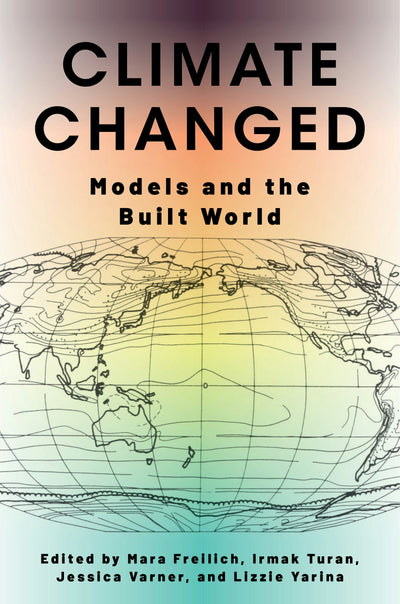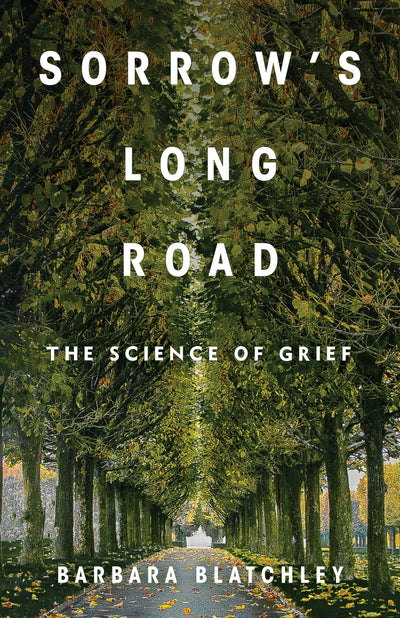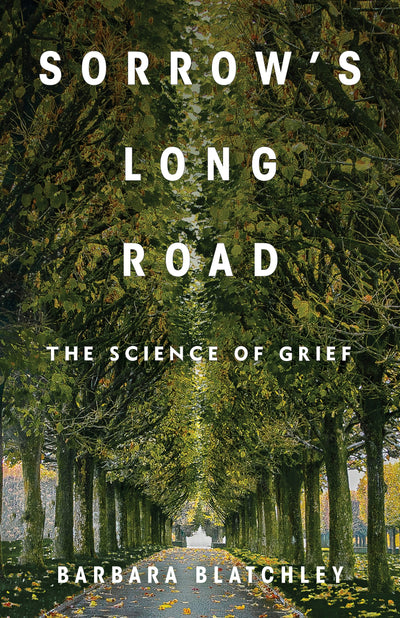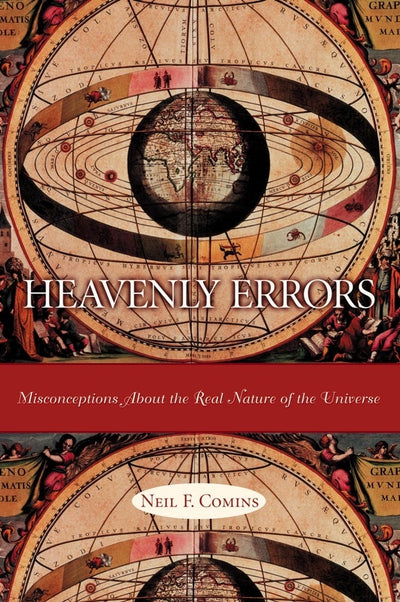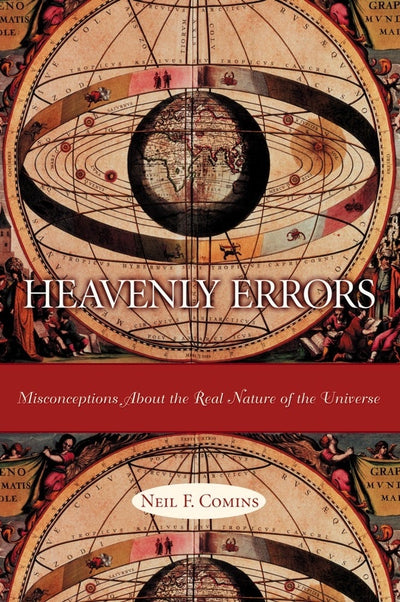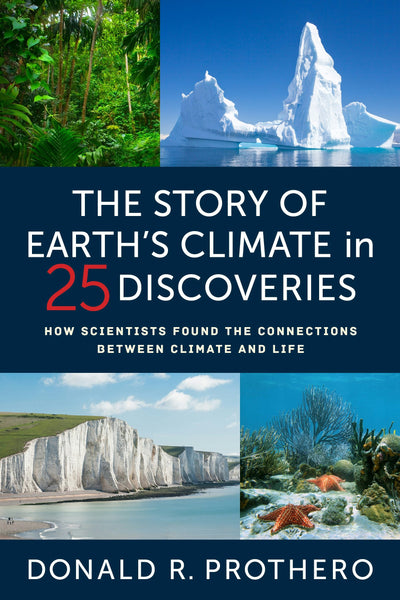-
Antiques & Collectibles
-
Architecture
-
Art
-
Bibles
-
Biography & Autobiography
-
Body, Mind & Spirit
-
Business & Economics
-
Comics & Graphic Novels
-
Computers
-
Cooking
-
Crafts & Hobbies
-
Design
-
Education
-
Family & Relationship
-
Fiction
-
Foreign Language Study
-
Games & Activities
-
Gardening
-
Health & Fitness
-
History
-
House & Home
-
Humor
-
Juvenile Fiction
-
Juvenile Nonfiction
-
Language Arts & Disciplines
-
Law
-
Literary Collections
-
Literary Criticism
-
Mathematics
-
Medical
-
Miscellaneous
-
Music
-
Nature
-
Performing Arts
-
Pets
-
Philosophy
-
Photography
-
Poetry
-
Political Science
-
Psychology
-
Reference
-
Religion
-
Self-Help
-
Science
-
Social Science
-
Sports & Recreation
-
Study Aids
-
Technology & Engineering
-
Transportation
-
Travel
-
True Crime
-
Young Adult Fiction
-
Young Adult Nonfiction
-
Antiques & Collectibles
-
Architecture
-
Art
-
Bibles
-
Biography & Autobiography
-
Body, Mind & Spirit
-
Business & Economics
-
Comics & Graphic Novels
-
Computers
-
Cooking
-
Crafts & Hobbies
-
Design
-
Education
-
Family & Relationship
-
Fiction
-
Foreign Language Study
-
Games & Activities
-
Gardening
-
Health & Fitness
-
History
-
House & Home
-
Humor
-
Juvenile Fiction
-
Juvenile Nonfiction
-
Language Arts & Disciplines
-
Law
-
Literary Collections
-
Literary Criticism
-
Mathematics
-
Medical
-
Miscellaneous
-
Music
-
Nature
-
Performing Arts
-
Pets
-
Philosophy
-
Photography
-
Poetry
-
Political Science
-
Psychology
-
Reference
-
Religion
-
Self-Help
-
Science
-
Social Science
-
Sports & Recreation
-
Study Aids
-
Technology & Engineering
-
Transportation
-
Travel
-
True Crime
-
Young Adult Fiction
-
Young Adult Nonfiction
Environmental Success Stories
Regular price $105.00 Save $-105.00Unlike many titles on environmental issues that portend a dark future, Environmental Success Stories delves into the most daunting ecological and environmental challenges humankind has faced and shows how scientists, citizens, and a responsive public sector have dealt with them successfully.
In addition to presenting the basic chemical and environmental science underlying problems like providing clean drinking water, removing DDT and lead from agriculture and our homes, and curtailing industrial pollution, this book also discusses the political actors, agency regulators, and community leaders who have collaborated to enact effective legislation. Sharing the stories of the people, organizations, and governments who have addressed these problems successfully, Frank M. Dunnivant explains how we might confront the world's largest and most complex environmental crisis: climate change. Now is the time for rededicated scientific exploration and enlightened citizen action to save our environment, and Dunnivant's book offers a stirring call to action.

The Story of Life in 25 Fossils
Regular price $27.00 Save $-27.00Every fossil tells a story. Best-selling paleontology author Donald R. Prothero describes twenty-five famous, beautifully preserved fossils in a gripping scientific history of life on Earth. Recounting the adventures behind the discovery of these objects and fully interpreting their significance within the larger fossil record, Prothero creates a riveting history of life on our planet.
The twenty-five fossils portrayed in this book catch animals in their evolutionary splendor as they transition from one kind of organism to another. We witness extinct plants and animals of microscopic and immense size and thrilling diversity. We learn about fantastic land and sea creatures that have no match in nature today. Along the way, we encounter such fascinating fossils as the earliest trilobite, Olenellus; the giant shark Carcharocles; the "fishibian" Tiktaalik; the "Frogamander" and the "Turtle on the Half-Shell"; enormous marine reptiles and the biggest dinosaurs known; the first bird, Archaeopteryx; the walking whale Ambulocetus; the gigantic hornless rhinoceros Paraceratherium, the largest land mammal that ever lived; and the Australopithecus nicknamed "Lucy," the oldest human skeleton. We meet the scientists and adventurers who pioneered paleontology and learn about the larger intellectual and social contexts in which their discoveries were made. Finally, we find out where to see these splendid fossils in the world's great museums.
Ideal for all who love prehistoric landscapes and delight in the history of science, this book makes a treasured addition to any bookshelf, stoking curiosity in the evolution of life on Earth.

The Story of the Earth in 25 Rocks
Regular price $24.00 Save $-24.00Every rock is a tangible trace of the earth’s past. The Story of the Earth in 25 Rocks tells the fascinating stories behind the discoveries that shook the foundations of geology. In twenty-five chapters—each about a particular rock, outcrop, or geologic phenomenon—Donald R. Prothero recounts the scientific detective work that shaped our understanding of geology, from the unearthing of exemplary specimens to tectonic shifts in how we view the inner workings of our planet.
Prothero follows in the footsteps of the scientists who asked—and answered—geology’s biggest questions: How do we know how old the earth is? What happened to the supercontinent Pangea? How did ocean rocks end up at the top of Mount Everest? What can we learn about our planet from meteorites and moon rocks? He answers these questions through expertly chosen case studies, such as Pliny the Younger’s firsthand account of the eruption of Vesuvius; the granite outcrops that led a Scottish scientist to theorize that the landscapes he witnessed were far older than Noah’s Flood; the salt and gypsum deposits under the Mediterranean Sea that indicate that it was once a desert; and how trying to date the age of meteorites revealed the dangers of lead poisoning. Each of these breakthroughs filled in a piece of the greater puzzle that is the earth, with scientific discoveries dovetailing with each other to offer an increasingly coherent image of the geologic past. Summarizing a wealth of information in an entertaining, approachable style, The Story of the Earth in 25 Rocks is essential reading for the armchair geologist, the rock hound, and all who are curious about the earth beneath their feet.

Origins of Darwin's Evolution
Regular price $75.00 Save $-75.00Historical biogeography—the study of the history of species through both time and place—first convinced Charles Darwin of evolution. This field was so important to Darwin’s initial theories and line of thinking that he said as much in the very first paragraph of On the Origin of Species (1859) and later in his autobiography. His methods included collecting mammalian fossils in South America clearly related to living forms, tracing the geographical distributions of living species across South America, and sampling peculiar fauna of the geologically young Galápagos Archipelago that showed evident affinities to South American forms. Over the years, Darwin collected other evidence in support of evolution, but his historical biogeographical arguments remained paramount, so much so that he devotes three full chapters to this topic in On the Origin of Species.
Discussions of Darwin’s landmark book too often give scant attention to this wealth of evidence, and we still do not fully appreciate its significance in Darwin’s thinking. In Origins of Darwin’s Evolution, J. David Archibald explores this lapse, showing how Darwin first came to the conclusion that, instead of various centers of creation, species had evolved in different regions throughout the world. He also shows that Darwin’s other early passion—geology—proved a more elusive corroboration of evolution. On the Origin of Species has only one chapter dedicated to the rock and fossil record, as it then appeared too incomplete for Darwin’s evidentiary standards. Carefully retracing Darwin’s gathering of evidence and the evolution of his thinking, Origins of Darwin’s Evolution achieves a new understanding of how Darwin crafted his transformative theory.

Modern Humans
Regular price $105.00 Save $-105.00Modern Humans is a vivid account of the most recent—and perhaps the most important—phase of human evolution: the appearance of anatomically modern people (Homo sapiens) in Africa less than half a million years ago and their later spread throughout the world. Leaving no stone unturned, John F. Hoffecker demonstrates that Homo sapiens represents a “major transition” in the evolution of living systems in terms of fundamental changes in the role of non-genetic information.
Modern Humans synthesizes recent findings from genetics (including the rapidly growing body of ancient DNA), the human fossil record, and archaeology relating to the African origin and global dispersal of anatomically modern people. Hoffecker places humans in the broad context of the evolution of life, emphasizing the critical role of genetic and non-genetic forms of information in living systems as well as how changes in the storage, transmission, and translation of information underlie major transitions in evolution. He also draws on information and complexity theory to explain the emergence of Homo sapiens in Africa several hundred thousand years ago and the rapid and unprecedented spread of our species into a variety of environments in Australia and Eurasia, including the Arctic and Beringia, beginning between 75,000 and 60,000 years ago. This magisterial work will appeal to all with an interest in the ever-fascinating field of human evolution.

The Theory That Changed Everything
Regular price $32.00 Save $-32.00Few people have done as much to change how we view the world as Charles Darwin. Yet On the Origin of Species is more cited than read, and parts of it are even considered outdated. In some ways, it has been consigned to the nineteenth century. In The Theory That Changed Everything, the renowned cognitive scientist Philip Lieberman demonstrates that there is no better guide to the world’s living—and still evolving—things than Darwin and that the phenomena he observed are still being explored at the frontiers of science.
In an exploration that ranges from Darwin’s transformative trip aboard the Beagle to Lieberman’s own sojourns in the remotest regions of the Himalayas, this book relates fresh, contemporary findings to the major concepts of Darwinian theory, which transcends natural selection. Drawing on his own research into the evolution of human linguistic and cognitive abilities, Lieberman explains the paths that adapted human anatomy to language. He demystifies the role of recently identified transcriptional and epigenetic factors encoded in DNA, explaining how nineteenth-century Swedish famines alternating with years of plenty caused survivors’ grandchildren to die many years short of their life expectancy. Lieberman is equally at home decoding supermarket shelves and climbing with the Sherpas as he discusses how natural selection explains features from lactose tolerance to ease of breathing at Himalayan altitudes. With conversational clarity and memorable examples, Lieberman relates the insights that led to groundbreaking discoveries in both Darwin’s time and our own while asking provocative questions about what Darwin would have made of controversial issues today, such as GMOs, endangered species, and the God question.

Evolving Brains, Emerging Gods
Regular price $37.00 Save $-37.00Religions and mythologies from around the world teach that God or gods created humans. Atheist, humanist, and materialist critics, meanwhile, have attempted to turn theology on its head, claiming that religion is a human invention. In this book, E. Fuller Torrey draws on cutting-edge neuroscience research to propose a startling answer to the ultimate question. Evolving Brains, Emerging Gods locates the origin of gods within the human brain, arguing that religious belief is a by-product of evolution.
Based on an idea originally proposed by Charles Darwin, Torrey marshals evidence that the emergence of gods was an incidental consequence of several evolutionary factors. Using data ranging from ancient skulls and artifacts to brain imaging, primatology, and child development studies, this book traces how new cognitive abilities gave rise to new behaviors. For instance, autobiographical memory, the ability to project ourselves backward and forward in time, gave Homo sapiens a competitive advantage. However, it also led to comprehension of mortality, spurring belief in an alternative to death. Torrey details the neurobiological sequence that explains why the gods appeared when they did, connecting archaeological findings including clothing, art, farming, and urbanization to cognitive developments. This book does not dismiss belief but rather presents religious belief as an inevitable outcome of brain evolution. Providing clear and accessible explanations of evolutionary neuroscience, Evolving Brains, Emerging Gods will shed new light on the mechanics of our deepest mysteries.

Origins of Darwin's Evolution
Regular price $30.00 Save $-30.00Historical biogeography—the study of the history of species through both time and place—first convinced Charles Darwin of evolution. This field was so important to Darwin’s initial theories and line of thinking that he said as much in the very first paragraph of On the Origin of Species (1859) and later in his autobiography. His methods included collecting mammalian fossils in South America clearly related to living forms, tracing the geographical distributions of living species across South America, and sampling peculiar fauna of the geologically young Galápagos Archipelago that showed evident affinities to South American forms. Over the years, Darwin collected other evidence in support of evolution, but his historical biogeographical arguments remained paramount, so much so that he devotes three full chapters to this topic in On the Origin of Species.
Discussions of Darwin’s landmark book too often give scant attention to this wealth of evidence, and we still do not fully appreciate its significance in Darwin’s thinking. In Origins of Darwin’s Evolution, J. David Archibald explores this lapse, showing how Darwin first came to the conclusion that, instead of various centers of creation, species had evolved in different regions throughout the world. He also shows that Darwin’s other early passion—geology—proved a more elusive corroboration of evolution. On the Origin of Species has only one chapter dedicated to the rock and fossil record, as it then appeared too incomplete for Darwin’s evidentiary standards. Carefully retracing Darwin’s gathering of evidence and the evolution of his thinking, Origins of Darwin’s Evolution achieves a new understanding of how Darwin crafted his transformative theory.

The Madhouse Effect
Regular price $18.95 Save $-18.95The award-winning climate scientist Michael E. Mann and the Pulitzer Prize–winning political cartoonist Tom Toles have been on the front lines of the fight against climate denialism for most of their careers. They have witnessed the manipulation of the media by business and political interests and the unconscionable play to partisanship on issues that affect the well-being of billions. The lessons they have learned have been invaluable, inspiring this brilliant, colorful escape hatch from the madhouse of the climate wars.
The Madhouse Effect portrays the intellectual pretzels into which denialists must twist logic to explain away the clear evidence that human activity has changed Earth's climate. Toles's cartoons collapse counter-scientific strategies into their biased components, helping readers see how to best strike at these fallacies. Mann's expert skills at science communication aim to restore sanity to a debate that continues to rage against widely acknowledged scientific consensus. The synergy of these two climate science crusaders enlivens the gloom and doom of so many climate-themed books—and may even convert die-hard doubters to the side of sound science.

Carboniferous Giants and Mass Extinction
Regular price $175.00 Save $-175.00Picture a world of dog-sized scorpions and millipedes as long as a car; tropical rainforests with trees towering over 150 feet into the sky and a giant polar continent five times larger than Antarctica. That world was not imaginary; it was the earth more than 300 million years ago in the Carboniferous period of the Paleozoic era. In Carboniferous Giants and Mass Extinction, George R. McGhee Jr. explores that ancient world, explaining its origins; its downfall in the end-Permian mass extinction, the greatest biodiversity crisis to occur since the evolution of animal life on Earth; and how its legacies still affect us today.
McGhee investigates the consequences of the Late Paleozoic ice age in this comprehensive portrait of the effects of ancient climate change on global ecology. Carboniferous Giants and Mass Extinction examines the climatic conditions that allowed for the evolution of gigantic animals and the formation of the largest tropical rainforests ever to exist, which in time turned into the coal that made the industrial revolution possible—and fuels the engine of contemporary anthropogenic climate change. Exploring the strange and fascinating flora and fauna of the Late Paleozoic ice age world, McGhee focuses his analysis on the forces that brought this world to an abrupt and violent end. Synthesizing decades of research and new discoveries, this comprehensive book provides a wealth of insights into past and present extinction events and climate change.

The Secret Lives of Dinosaurs
Regular price $38.95 Save $-38.95Buried within a lost world, astonishing evidence reveals the behavior of extinct animals, giving us a glimpse at both everyday and epic events. If we look at these discoveries carefully, the untold stories of these magnificent creatures come into view, breathing new life into the prehistoric past.
The Secret Lives of Dinosaurs tells the remarkable tales of ancient animals through some of the most distinctive and unusual fossils ever found, offering an intimate, behind-the-scenes look into the story of life in deep time. Venturing hundreds of millions of years into the past, Dean R. Lomax takes us on a journey through the grand cycle of life, infused with anecdotes from his own adventures and sprinkled with a touch of dinosaur humor.
These fossils tell real-world stories of prehistoric parenting, the quest for survival, and the endless struggle between predator and prey. Unbelievable moments are captured: saber-toothed cats clashing, mega-millipedes mating, dinosaurs swimming. From ammonite eggs to mosasaur mealtimes, and from a pregnant ichthyosaur that chowed down on a bird to the mammal that took down a dinosaur, these behaviors challenge what we thought we knew about the prehistoric world.
This book looks into the private moments of long-extinct creatures as never before, letting us see them not just as fossils in a museum but as living, breathing animals with personalities and emotions. Vivid illustrations by Bob Nicholls bring these incredible stories to life in full color.

Climate Changed
Regular price $120.00 Save $-120.00Models change our worlds. From global carbon flux models to regional coastal flood prediction maps, climate-related models influence how we know our environment, how we build our cities, and how we act on a climate-altered planet. Yet such models typically require specialized knowledge to navigate, and because the climate crisis is inherently multidimensional, technical expertise in isolation is not enough.
Climate Changed examines models and their imperfect yet central role in understanding the relationship between global climate dynamics and the human-built environment. It compares and synthesizes the methods and function of models in disciplines ranging from architecture and planning to climate science and natural hazards research. This book considers how disparate models are woven together to understand the climate crisis, underscoring the necessity of combining locally situated and transdisciplinary knowledge with climate science to navigate current and future cataclysmic changes. It highlights the challenges and consequences of disciplinary boundaries, siloed scientific knowledge, and uneven data and develops ways to overcome these limitations.
As the world faces the effects of climate change, climate scientists are debating the future of their field; architects, engineers, and planners are designing in the context of climate change; and society at large is grappling with how to take action. This book brings those communities together to chart a path forward.

Climate Changed
Regular price $30.00 Save $-30.00Models change our worlds. From global carbon flux models to regional coastal flood prediction maps, climate-related models influence how we know our environment, how we build our cities, and how we act on a climate-altered planet. Yet such models typically require specialized knowledge to navigate, and because the climate crisis is inherently multidimensional, technical expertise in isolation is not enough.
Climate Changed examines models and their imperfect yet central role in understanding the relationship between global climate dynamics and the human-built environment. It compares and synthesizes the methods and function of models in disciplines ranging from architecture and planning to climate science and natural hazards research. This book considers how disparate models are woven together to understand the climate crisis, underscoring the necessity of combining locally situated and transdisciplinary knowledge with climate science to navigate current and future cataclysmic changes. It highlights the challenges and consequences of disciplinary boundaries, siloed scientific knowledge, and uneven data and develops ways to overcome these limitations.
As the world faces the effects of climate change, climate scientists are debating the future of their field; architects, engineers, and planners are designing in the context of climate change; and society at large is grappling with how to take action. This book brings those communities together to chart a path forward.

Sorrow's Long Road
Regular price $24.00 Save $-24.00After the research psychologist Barbara Blatchley lost her husband and partner of thirty-six years, her life changed utterly. Seeking to understand the pain and confusion she felt, Blatchley began exploring the psychology and neuroscience of bereavement. Why does grief last so long and hurt so much? How do we come to terms with loss?
In Sorrow’s Long Road, Blatchley interweaves an engaging and reader-friendly look at the research on grief with her powerful personal narrative. Beginning with the day of her husband’s death, she traces the questions that loss raised and the answers that science provides. Blatchley examines the psychology of love and attachment, detailing how we bond with others and what happens when those bonds are broken. She considers the storm of emotions that the bereaved experience, as well as both the physical and psychological effects of grieving. Blatchley maps out how we adapt to the changes that loss brings and find a new identity afterward. In addition to her own experiences, she shares the stories of other people who have suffered a loss and struggled to recover, illustrating how grief changes over time.
Accessibly written and deeply empathetic, Sorrow’s Long Road humanizes the science, showing how psychology and neuroscience can help us make sense of the darkest times in our lives.

Sorrow's Long Road
Regular price $100.00 Save $-100.00After the research psychologist Barbara Blatchley lost her husband and partner of thirty-six years, her life changed utterly. Seeking to understand the pain and confusion she felt, Blatchley began exploring the psychology and neuroscience of bereavement. Why does grief last so long and hurt so much? How do we come to terms with loss?
In Sorrow’s Long Road, Blatchley interweaves an engaging and reader-friendly look at the research on grief with her powerful personal narrative. Beginning with the day of her husband’s death, she traces the questions that loss raised and the answers that science provides. Blatchley examines the psychology of love and attachment, detailing how we bond with others and what happens when those bonds are broken. She considers the storm of emotions that the bereaved experience, as well as both the physical and psychological effects of grieving. Blatchley maps out how we adapt to the changes that loss brings and find a new identity afterward. In addition to her own experiences, she shares the stories of other people who have suffered a loss and struggled to recover, illustrating how grief changes over time.
Accessibly written and deeply empathetic, Sorrow’s Long Road humanizes the science, showing how psychology and neuroscience can help us make sense of the darkest times in our lives.

Biotechnology Law
Regular price $70.00 Save $-70.00Biotechnology and law are inextricable. Patent, regulatory, and contract law profoundly shape the biotech industry, and each of these practice areas is deeply intertwined with the science it governs. Yet many in this industry lack even a basic grasp of these laws, jeopardizing their business success as a result.
This book is an essential introduction to biotechnology law for scientists, startup founders, regulatory specialists, patent liaisons, investors, academics, students, and other nonattorneys with biotech backgrounds. It covers core topics such as patentability, patent prosecution and infringement, patent opinions, the development and FDA approval of small-molecule and biologic drugs, regulatory exclusivity, generic drugs and ANDA litigation, biosimilars and the patent dance, patent licenses, and collaboration agreements. Written with scientists in mind, Biotechnology Law is a clear, concise, and entirely practical primer on the topic, replete with straightforward, real-world examples to illustrate each key concept. Understanding the legal machinery through which science becomes business is not a luxury—it is a crucial part of a scientist’s training. Alan J. Morrison’s expert treatment embraces this new reality.

Dinosaur Tracks and Other Fossil Footprints of Europe
Regular price $65.00 Save $-65.00The long and distinguished tradition of tracking dinosaurs and other extinct animals in Europe dates back to the 1830s. Yet this venerable tradition of scientific activity cannot compare in magnitude and scope with the unprecedented spate of discovery and documentation of the last few years. Now, following on the heels of his Dinosaur Tracks and Other Fossil Footprints of the Western United States, Martin Lockley teams up with Christian Meyer to present an up to date synthesis of the recent findings in the field of European fossil footprints. Drawing extensively on their own research results from studies in Britain, Switzerland, Portugal, Spain, and elsewhere, the authors create a dynamic picture of mammal, reptile, bird, and amphibian "track-makers" throughout more than 300 million years of vertebrate evolution, placed in the context of Europe's changing ancient environments.
Beginning with an introduction to tracking and a history of the European tracking tradition, Dinosaur Tracks and Other Fossil Footprints of Europe then charts a broad path of evolutionary proliferation from the proto-dinosaurs of the Early Triassic period to the dinosaurs' decline and disappearance in the Upper Cretaceous. The survey continues into the age of mammals and birds, ending with the cave art of our Paleolithic ancestors.

Heavenly Errors
Regular price $32.00 Save $-32.00One of the great paradoxes of modern times is that the more scientists understand the natural world, the more we discover that our everyday beliefs about it are wrong. Astronomy, in particular, is one of the most misunderstood scientific disciplines.
With the participation of thousands of undergraduate students, Neil F. Comins has identified and classified, by origin and topic, over 1,700 commonly held misconceptions. Heavenly Errors provides access to all of them and explores many, including:
Black holes suck in everything around them.
The Sun shines by burning gas.
Comets have tails trailing behind them.
The Moon alone causes tides.
Mercury, the closest planet to the Sun, is the hottest planet.
In the course of correcting these errors, he explains that some occur through the prevalence of pseudosciences such as astrology and UFO-logy and some enter the public conscience through the "bad astronomy" of Star Trek, Star Wars, and other science-fiction movies.. Perhaps most important, Professor Comins presents the reader with the methods for identifying and replacing incorrect ideas—tools with which to probe erroneous notions so that we can begin to question for ourselves... and to think more like scientists.

Heavenly Errors
Regular price $105.00 Save $-105.00One of the great paradoxes of modern times is that the more scientists understand the natural world, the more we discover that our everyday beliefs about it are wrong. Astronomy, in particular, is one of the most misunderstood scientific disciplines.
With the participation of thousands of undergraduate students, Neil F. Comins has identified and classified, by origin and topic, over 1,700 commonly held misconceptions. Heavenly Errors provides access to all of them and explores many, including:
Black holes suck in everything around them.
The Sun shines by burning gas.
Comets have tails trailing behind them.
The Moon alone causes tides.
Mercury, the closest planet to the Sun, is the hottest planet.
In the course of correcting these errors, he explains that some occur through the prevalence of pseudosciences such as astrology and UFO-logy and some enter the public conscience through the "bad astronomy" of Star Trek, Star Wars, and other science-fiction movies.. Perhaps most important, Professor Comins presents the reader with the methods for identifying and replacing incorrect ideas—tools with which to probe erroneous notions so that we can begin to question for ourselves... and to think more like scientists.

The Story of Earth's Climate in 25 Discoveries
Regular price $30.00 Save $-30.00Over 4.5 billion years, Earth’s climate has transformed tremendously. Before our more temperate recent past, the planet swung from one extreme to another—from a greenhouse world of sweltering temperatures and high sea levels to a “snowball earth” in which glaciers reached the equator. During this history, we now know, living things and the climate have always influenced and even shaped each other. But the climate has never changed as rapidly or as drastically as it has since the Industrial Revolution.
In this lively and entertaining book, Donald R. Prothero explores the astonishing connections between climate and life through the ages, telling the remarkable stories of the scientists who made crucial discoveries. Journeying through the intertwined evolution of climate and life, he tackles questions such as: Why do we have phytoplankton to thank for the air we breathe? What kind of climate was necessary for the rise of the dinosaurs—or the mammals, their successors? When and how have climatic changes caused mass extinctions? Prothero concludes with the Ice Ages and the Holocene, the role of climate in human history, and the perils of anthropogenic climate change. Understanding why the climate has changed in the past, this timely book shows, is essential to grasping the gravity of how radically human activity is altering the climate today.















